Fleurs du Mal Magazine


Or see the index
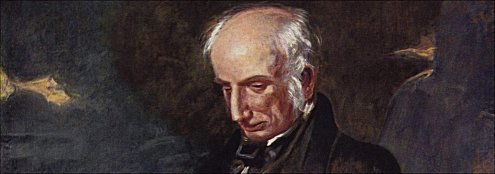
W i l l i a m W o r d s w o r t h
(1770-1850)
ADDRESS TO THE SONS OF BURNS
after visiting their Father’s Grave (August 14th, 1803.)
Ye now are panting up life’s hill!
‘Tis twilight time of good and ill,
And more than common strength and skill
Must ye display
If ye would give the better will
Its lawful sway.
Strong bodied if ye be to bear
Intemperance with less harm, beware!
But if your Father’s wit ye share,
Then, then indeed,
Ye Sons of Burns! for watchful care
There will be need.
For honest men delight will take
To shew you favor for his sake,
Will flatter you; and Fool and Rake
Your steps pursue:
And of your Father’s name will make
A snare for you.
Let no mean hope your souls enslave;
Be independent, generous, brave!
Your Father such example gave,
And such revere!
But be admonish’d by his Grave,
And think, and fear!
.jpg)
William Wordsworth poetry
kempis poetry magazine
More in: Wordsworth, William
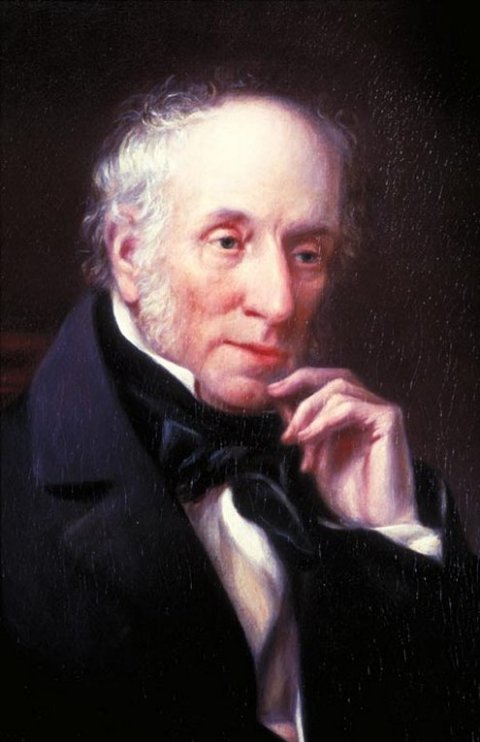
W i l l i a m W o r d s w o r t h
(1770-1850)
I travell’d among unknown Men
I travell’d among unknown Men,
In Lands beyond the Sea;
Nor England! did I know till then
What love I bore to thee.
‘Tis past, that melancholy dream!
Nor will I quit thy shore
A second time; for still I seem
To love thee more and more.
Among thy mountains did I feel
The joy of my desire;
And She I cherish’d turn’d her wheel
Beside an English fire.
Thy mornings shew’d–thy nights conceal’d
The bowers where Lucy play’d;
And thine is, too, the last green field
Which Lucy’s eyes survey’d!
.jpg)
William Wordsworth poetry
kempis poetry magazine
More in: Archive W-X, Wordsworth, William
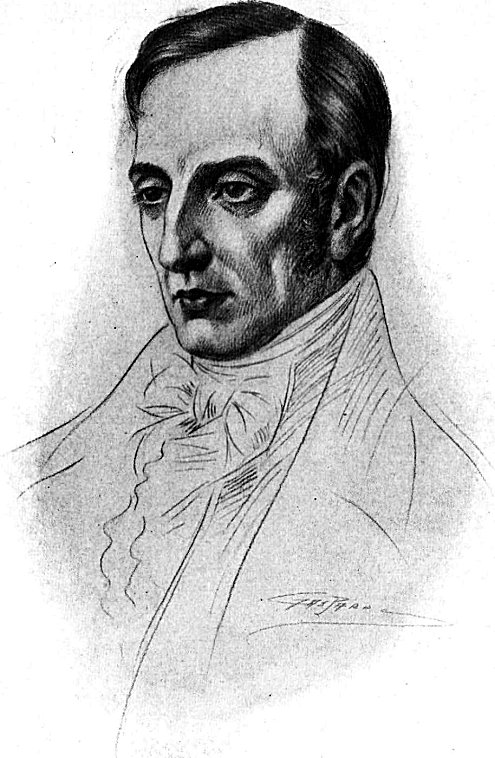
William Wordsworth
(1770-1850)
T h e S e v e n S i s t e r s
or the Solitude of Binnorie
Seven Daughters had Lord Archibald,
All Children of one Mother:
I could not say in one short day
What love they bore each other,
A Garland of seven Lilies wrought!
Seven Sisters that together dwell;
But he, bold Knight as ever fought,
Their Father, took of them no thought,
He loved the Wars so well.
Sing, mournfully, oh! mournfully,
The Solitude of Binnorie!
Fresh blows the wind, a western wind,
And from the shores of Erin,
Across the wave, a Rover brave
To Binnorie is steering:
Right onward to the Scottish strand
The gallant ship is borne;
The Warriors leap upon the land,
And hark! the Leader of the Band
Hath blown his bugle horn.
Sing, mournfully, oh! mournfully,
The Solitude of Binnorie.
Beside a Grotto of their own,
With boughs above them closing,
The Seven are laid, and in the shade
They lie like Fawns reposing.
But now, upstarting with affright
At noise of Man and Steed,
Away they fly to left to right–
Of your fair household, Father Knight,
Methinks you take small heed!
Sing, mournfully, oh! mournfully,
The Solitude of Binnorie.
Away the seven fair Campbells fly,
And, over Hill and Hollow,
With menace proud, and insult loud,
The youthful Rovers follow.
Cried they, "Your Father loves to roam:
Enough for him to find
The empty House when he comes home;
For us your yellow ringlets comb,
For us be fair and kind!"
Sing, mournfully, oh! mournfully,
The Solitude of Binnorie.
Some close behind, some side by side,
Like clouds in stormy weather,
They run, and cry, "Nay let us die,
And let us die together."
A Lake was near; the shore was steep;
There never Foot had been;
They ran, and with a desperate leap
Together plung’d into the deep,
Nor ever more were seen.
Sing, mournfully, oh! mournfully,
The Solitude of Binnorie.
The Stream that flows out of the Lake,
As through the glen it rambles,
Repeats a moan o’er moss and stone,
For those seven lovely Campbells.
Seven little Islands, green and bare,
Have risen from out the deep:
The Fishers say, those Sisters fair
By Faeries are all buried there,
And there together sleep.
Sing, mournfully, oh! mournfully
The Solitude of Binnorie.
.jpg)
William Wordsworth poetry
kempis poetry magazine
More in: Wordsworth, William
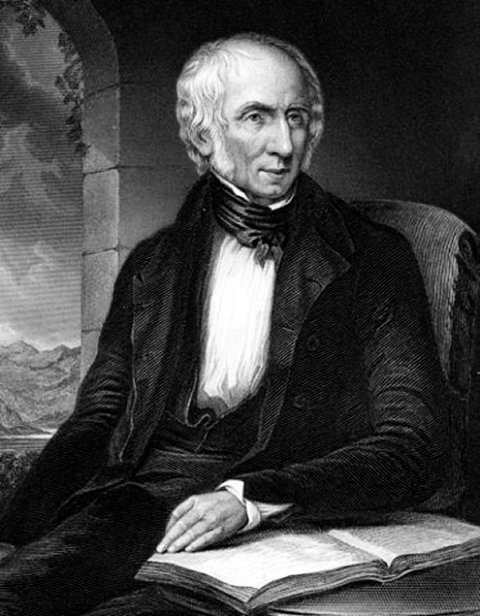
William Wordsworth
(1770-1850)
Rob Roy’s Grave
The History of Rob Roy is sufficiently known; his Grave is near the head of Loch Ketterine, in one of those small Pin-fold-like Burial-grounds, of neglected and desolate appearance, which the Traveller meets with in the Highlands of Scotland.
A famous Man is Robin Hood,
The English Ballad-singer’s joy!
And Scotland has a Thief as good,
An Outlaw of as daring mood,
She has her brave ROB ROY!
Then clear the weeds from off his Grave,
And let us chaunt a passing Stave
In honour of that Hero brave!
Heaven gave Rob Roy a dauntless heart,
And wondrous length and strength of arm:
Nor craved he more to quell his Foes,
Or keep his Friends from harm.
Yet was Rob Roy as wise as brave;
Forgive me if the phrase be strong;–
Poet worthy of Rob Roy
Must scorn a timid song.
Say, then, that he was wise as brave;
As wise in thought as bold in deed:
For in the principles of things
He sought his moral creed.
Said generous Rob, "What need of Books?
Burn all the Statutes and their shelves:
They stir us up against our Kind;
And worse, against Ourselves."
"We have a passion, make a law,
Too false to guide us or controul!
And for the law itself we fight
In bitterness of soul."
"And, puzzled, blinded thus, we lose
Distinctions that are plain and few:
These find I graven on my heart:
That tells me what to do."
"The Creatures see of flood and field,
And those that travel on the wind!
With them no strife can last; they live
In peace, and peace of mind."
"For why?–because the good old Rule
Sufficeth them, the simple Plan,
That they should take who have the power,
And they should keep who can."
"A lesson which is quickly learn’d,
A signal this which all can see!
Thus nothing here provokes the Strong
To wanton cruelty."
"All freakishness of mind is check’d;
He tam’d, who foolishly aspires;
While to the measure of his might
Each fashions his desires."
"All Kinds, and Creatures, stand and fall
By strength of prowess or of wit:
Tis God’s appointment who must sway,
And who is to submit."
"Since then," said Robin, "right is plain,
And longest life is but a day;
To have my ends, maintain my rights,
I’ll take the shortest way."
And thus among these rocks he liv’d,
Through summer’s heat and winter’s snow:
The Eagle, he was Lord above,
And Rob was Lord below.
So was it–would, at least, have been
But through untowardness of fate:
For Polity was then too strong;
He came an age too late,
Or shall we say an age too soon?
For, were the bold Man living now,
How might he flourish in his pride,
With buds on every bough!
Then rents and Factors, rights of chace,
Sheriffs, and Lairds and their domains
Would all have seem’d but paltry things,
Not worth a moment’s pains.
Rob Roy had never linger’d here,
To these few meagre Vales confin’d;
But thought how wide the world, the times
How fairly to his mind!
And to his Sword he would have said,
"Do Thou my sovereign will enact
From land to land through half the earth!
Judge thou of law and fact!"
"Tis fit that we should do our part;
Becoming, that mankind should learn
That we are not to be surpass’d
In fatherly concern."
"Of old things all are over old,
Of good things none are good enough:–
We’ll shew that we can help to frame
A world of other stuff."
"I, too, will have my Kings that take
From me the sign of life and death:
Kingdoms shall shift about, like clouds,
Obedient to my breath."
And, if the word had been fulfill’d,
As might have been, then, thought of joy!
France would have had her present Boast;
And we our brave Rob Roy!
Oh! say not so; compare them not;
I would not wrong thee, Champion brave!
Would wrong thee no where; least of all
Here standing by thy Grave.
For Thou, although with some wild thoughts,
Wild Chieftain of a Savage Clan!
Hadst this to boast of; thou didst love
The liberty of Man.
And, had it been thy lot to live
With us who now behold the light,
Thou would’st have nobly stirr’d thyself,
And battled for the Right.
For Robin was the poor Man’s stay
The poor man’s heart, the poor man’s hand;
And all the oppress’d, who wanted strength,
Had Robin’s to command.
Bear witness many a pensive sigh
Of thoughtful Herdsman when he strays
Alone upon Loch Veol’s Heights,
And by Loch Lomond’s Braes!
And, far and near, through vale and hill,
Are faces that attest the same;
And kindle, like a fire new stirr’d,
At sound of ROB ROY’s name.
.jpg)
William Wordsworth poetry
kempis poetry magazine
More in: Wordsworth, William
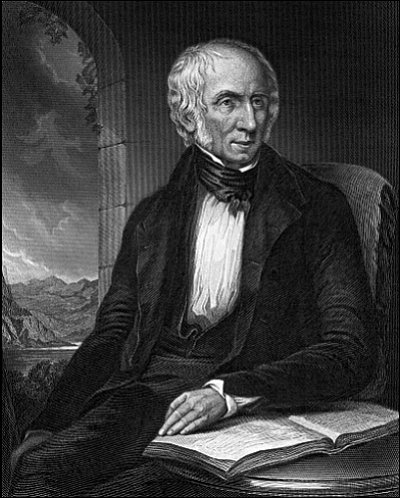
William Wordsworth
(1770-1850)
B e g g a r s
She had a tall Man’s height, or more;
No bonnet screen’d her from the heat;
A long drab-colour’d Cloak she wore,
A Mantle reaching to her feet:
What other dress she had I could not know;
Only she wore a Cap that was as white as snow.
In all my walks, through field or town,
Such Figure had I never seen:
Her face was of Egyptian brown:
Fit person was she for a Queen,
o head those ancient Amazonian files:
Or ruling Bandit’s Wife, among the Grecian Isles.
Before me begging did she stand,
Pouring out sorrows like a sea;
Grief after grief:–on English Land
Such woes I knew could never be;
And yet a boon I gave her; for the Creature
Was beautiful to see; a Weed of glorious feature!
I left her, and pursued my way;
And soon before me did espy
A pair of little Boys at play,
Chasing a crimson butterfly;
The Taller follow’d with his hat in hand,
Wreath’d round with yellow flow’rs, the gayest of the land.
The Other wore a rimless crown,
With leaves of laurel stuck about:
And they both follow’d up and down,
Each whooping with a merry shout;
Two Brothers seem’d they, eight and ten years old;
And like that Woman’s face as gold is like to gold.
They bolted on me thus, and lo!
Each ready with a plaintive whine;
Said I, “Not half an hour ago
Your Mother has had alms of mine.”
“That cannot be,” one answer’d, “She is dead.”
“Nay but I gave her pence, and she will buy you bread.”
“She has been dead, Sir, many a day.”
“Sweet Boys, you’re telling me a lie”;
“It was your Mother, as I say–“
And in the twinkling of an eye,
“Come, come!” cried one; and, without more ado,
Off to some other play they both together flew.
POEM OF THE WEEK
September 21, 2008

kemp=mag poetry magazine
More in: Archive W-X, Wordsworth, William
Thank you for reading Fleurs du Mal - magazine for art & literature